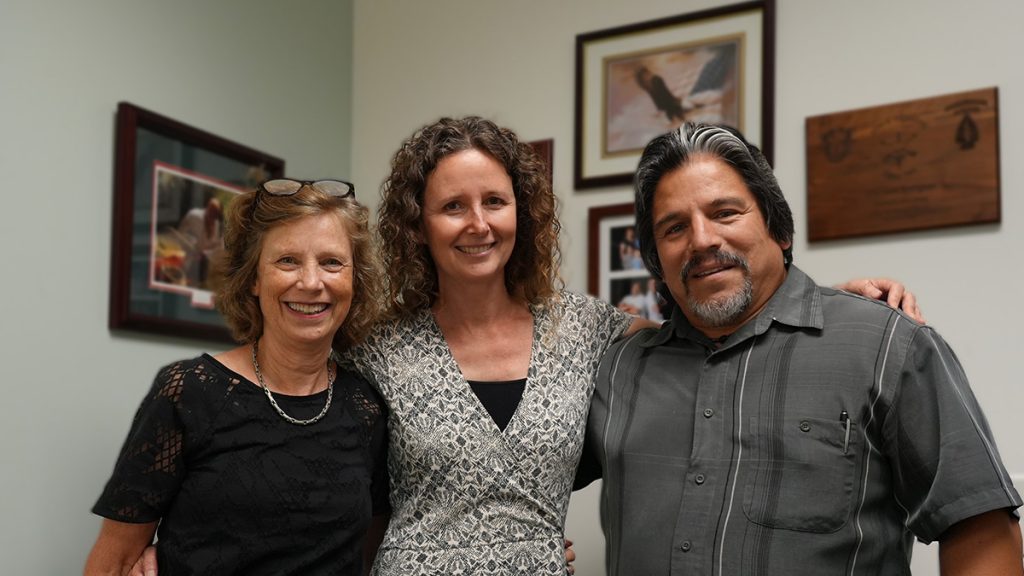Since 2014, English teaching professor Hilary Lithgow has led a book group veterans; she has been working with Carolina’s THRIVE program since the spring. THRIVE combines conventional medicine with alternative approaches to treat veterans and first responders.

In the 19th century poem “Ulysses” by Alfred Tennyson, mythic Greek hero Odysseus returns home from the Trojan War — only to find that he misses the battlefield.
“To a roomful of veterans — even though it’s this old-fashioned, 19th century language about this B.C., Homeric story — they hear certain lines, and they’re like, ‘That’s me. Yeah, I recognize that,’” said Hilary Lithgow. She is a teaching professor in the College of Arts and Sciences’ English and comparative literature department.
Since 2014, Lithgow has helped lead book groups for veterans, using literature to give shape and form to feelings veterans don’t often know how to express.
“It’s powerful. It’s timeless and universal,” Lithgow said. “That’s what I think the humanities is all about: giving people beautiful and meaningful evocations of our human being that they can better understand themselves through.”
Since the spring, Lithgow has also led book groups for veterans through Carolina’s Transforming Health and Resilience in Veterans Program. She often quotes from a 2014 New York Times Op-Ed by Marine veteran Phil Klay: “It’s a powerful moment, when you discover a vocabulary exists for something you’d thought incommunicably unique.”
THRIVE’s three-week intensive outpatient program aims to create those kinds of moments for veterans and for first responders, with the reading group serving as one piece of a holistic treatment for both body and mind.
Part of the Matthew Gfeller Center, THRIVE was established in 2021 with a $12.5 million pledge from the Avalon Action Alliance. The clinical outreach program is dedicated to treating traumatic brain injuries and related health conditions for veterans and first responders, giving them access to a deep team of clinicians ranging from physical therapists to neuropsychologists.
THRIVE participants spend roughly 250 to 300 hours with clinicians, said Sam Rodriguez, a 29-year U.S. Army veteran and the program’s veteran outreach and program coordinator.
THRIVE leverages expertise from across the UNC System. Lithgow’s reading group is one of the nonconventional approaches the program incorporates. Veterans also take part in expressive art therapy, yoga and mindfulness sessions, acupuncture and even equine therapy.
“I go out with them to the farm, and to see the look on their faces afterwards is incredible,” Rodriguez said. “It’s amazing to see the transition. When they get out there, and they’re just around the animals, it changes their personalities. It opens them up a little bit more.”
Rodriguez has seen a similar response from veterans during Lithgow’s reading groups, which he attends with clinical psychologist Dana Lebo. From his three decades in the Army, Rodriguez understands the struggles some veterans have sharing their experiences. Reading the stories of others can help break down those walls.
“It puts them in the story,” Rodriguez said. “And it allows them to be able to relate. And that ability to relate to the story allows them to open up and tell their story – in bits and pieces for some of them. Some of them just open up completely.
“One of the things that we talk about in the veteran community is, ‘What are the stories that aren’t being told? And are we listening?’ We found that the greatest effect that we’ve had on the veterans and first responders is that we are a team that listens.”
Veterans and first responders interested in learning more about THRIVE can visit the program’s website.
By Michael Lananna, University Communications
